Breathing clean air isn’t just a luxury—it’s essential for our health and well-being. Your home’s HVAC system plays a crucial role in maintaining indoor air quality, and at the heart of this system lies the often-overlooked hero: the air filter. Choosing the right filter can mean the difference between a home filled with allergens and pollutants and one with crisp, clean air. Let’s dive into the world of HVAC air filters and uncover how these unassuming components can dramatically impact your living space and even your wallet. A better filter can enhance airflow and lower your electric bill, making it a crucial part of your home’s HVAC system.
Understanding Air Filters for HVAC Systems
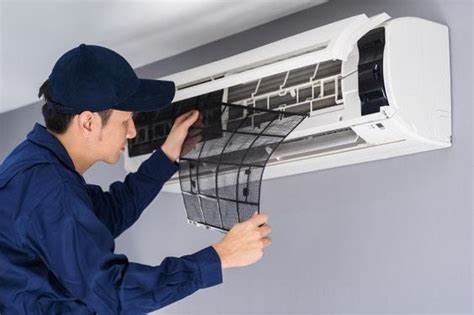
The unsung guardians of your home’s air quality, HVAC filters do more than meet the eye. They’re the first line of defense against a barrage of airborne invaders.
Air filters are the gatekeepers of your HVAC system, trapping particles and preventing them from circulating through your home. While fiberglass filters have long been the standard, pleated filters are gaining popularity for their enhanced filtration capabilities. Thicker filters can capture more particles, providing a better barrier against dust and allergens.
Effective air filtration is the cornerstone of a healthy home environment. By capturing dust, pollen, and other particulates, filters not only improve indoor air quality but also protect your HVAC system from harmful buildup, ensuring it runs smoothly and efficiently. Regularly replacing your filters helps maintain optimal performance and extends the lifespan of your HVAC system. In some cases, using washable ones can be a more eco-friendly option, but they often lack the efficiency of disposable pleated filters.
Types of Air Filters
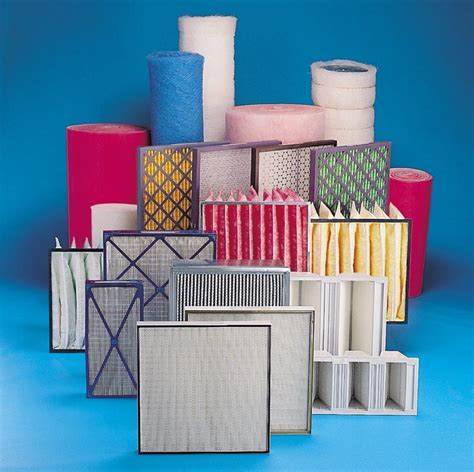
When it comes to air filters for your HVAC system, one size doesn’t fit all. The best air filter for your home depends on various factors, including your specific air quality needs, HVAC system requirements, and budget. Let’s break down the contenders in detail:
- Pleated Filters: Pleated air filters can capture smaller particles, including pet dander and fine dust. They’re excellent at removing airborne contaminants, leading to cleaner air. Pleated filters are ideal for homes with pets or allergy sufferers, those prioritizing indoor air quality, and HVAC systems that can handle the increased air resistance.
- Fiberglass Filters: Fiberglass filters are cost-effective, being the cheapest option available, which makes frequent replacements less burdensome. They also have a low-pressure drop, meaning minimal impact on airflow, suitable for most HVAC systems.
- Washable Filters: Washable filters are cost-effective in the long term. While initially more expensive, they can be used for several years. They’re also environmentally friendly, reducing waste from disposable filters. Washable filters are best suited for environmentally conscious homeowners, those willing to perform regular AC maintenance, and homes with minimal air quality concerns.
- Electrostatic Filters: Electrostatic filters boast high efficiency, capable of capturing very small particles, including smoke and bacteria. They’re available in both disposable and washable versions, offering flexibility.
- HEPA Filters: HEPA filters offer extremely high efficiency, capable of removing 99.97% of particles as small as 0.3 microns. They’re excellent for allergy and asthma sufferers, providing the highest level of air purification. The main drawback is that HEPA filters are not suitable for most residential HVAC systems due to high air resistance. They’re often used in standalone air purifiers rather than central HVAC systems.
When selecting an air filter, consider factors like MERV rating, filter thickness, replacement frequency, system compatibility, and your specific air quality needs. Remember, even the best air filters need to be changed regularly to maintain their effectiveness. Many homeowners find it convenient to buy filters in bulk from hardware stores, ensuring they always have a new filter on hand when it’s time for a replacement.
Key Factors to Consider When Choosing Air Filters

Selecting the right air filter for your HVAC system isn’t just about picking the thickest filter off the shelf. It’s a delicate balance of various factors that can make or break your indoor air quality. Understanding these key elements will help you choose the best air filter for your residential HVAC system, ensuring optimal performance and cleaner air.
Minimum Efficiency Reporting Value (MERV)
MERV ratings are the report card for air filters, ranging from 1 to 20. Higher numbers mean better filtration, but it’s not always about going for the highest score. Most residential HVAC systems are designed for filters in the MERV 8 to 13 range, striking a balance between filtration and airflow.
MERV 8 filters are often sufficient for general use in residential properties, capturing larger particles like dust, pollen, and pet dander. They offer a good balance between filtration and airflow, suitable for most HVAC systems.
Air Filter Efficiency
While higher MERV-rated filters can capture smaller particles, they can also restrict airflow if not properly matched to your system. It’s crucial to find the sweet spot where filtration doesn’t compromise your HVAC’s performance. The right air filter efficiency can prevent airflow restrictions, ensuring the HVAC unit runs smoothly.
Air Filter Size and Compatibility
Size matters when it comes to air filters. An ill-fitting filter is like leaving the door open for pollutants. Ensure you know your system’s requirements and choose a filter that fits snugly without any gaps. Using the correct size ensures that the air handler can operate efficiently, preventing pollutants from bypassing the filter.
Benefits of Upgrading to Higher Efficiency Filters
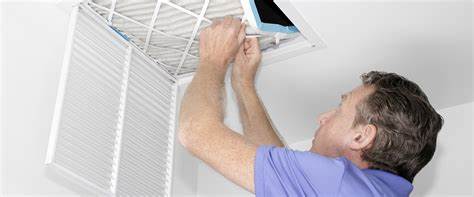
Making the leap to a higher-efficiency filter can be a game-changer for your indoor air quality and your HVAC system’s longevity.
Improved Indoor Air Quality (IAQ)
Upgrading your filter is like giving your residential property a breath of fresh air. High-efficiency filters can trap minute particles that lower-rated filters miss, creating a haven for employees and clients, especially those with respiratory issues. Filters like MERV 13 can capture tiny particles, significantly improving indoor air quality.
Energy Efficiency and Cost Savings
A cleaner system is an efficient system. By preventing debris buildup, high-quality filters can help your HVAC run smoother, potentially lowering your energy bills in the process. Regular replacement filters reduce the workload on the HVAC system, improving energy efficiency.
Extended HVAC System Lifespan
Think of a good filter as preventative medicine for your HVAC. By keeping the internal components clean, you’re reducing wear and tear, potentially adding years to your system’s life. This is especially important for air conditioners and ductless air conditioning systems where clean air filters are crucial for optimal performance.
Common Airborne Particles and Filtration Needs
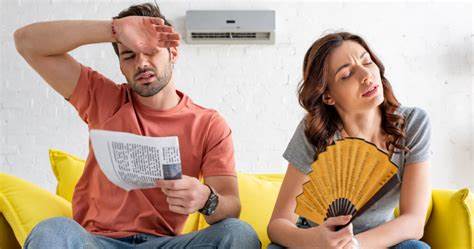
Your residential property is a battlefield of invisible particles, each requiring a different level of filtration to conquer. Effective filtration is crucial for maintaining indoor air quality and ensuring a healthy environment for employees and customers.
Types of Airborne Particles and Their Specific Filtration Needs
Airborne particles in residential properties vary widely in size and type. Each type of particle requires a specific filtration approach to effectively remove it from the air. Here are some common types of airborne particles and the filtration needs associated with each:
Pet Hair and Carpet Fibers:
These larger, visible particles are common in residential spaces with carpets and pets. Standard MERV 8 filters are typically sufficient to capture these particles. Regular vacuuming and cleaning can also help reduce the load on your HVAC filter.
Dust and Dust Mites:
Dust particles and dust mites are ubiquitous in indoor environments. These can cause allergic reactions and respiratory issues. Filters with a MERV rating of 8-13 can effectively trap these particles, enhancing indoor air quality.
Pollen:
Pollen can infiltrate buildings through open doors and windows, especially during certain seasons. Pollen particles are larger but can still cause significant discomfort for allergy sufferers. A MERV 11 or higher filter can capture pollen particles efficiently.
Mold Spores:
Mold spores are a serious concern in damp or humid environments. They can cause respiratory problems and exacerbate asthma. HEPA filters or high MERV-rated filters (13 or above) are effective in capturing mold spores. Maintaining humidity levels and addressing moisture issues can also help control mold growth.
Fine Dust and Particulate Matter (PM2.5):
Fine dust and particulate matter, such as PM2.5, are tiny particles that can penetrate deep into the lungs and even enter the bloodstream. These particles come from various sources, including vehicle emissions and industrial processes. High-efficiency filters, such as HEPA filters or filters with a MERV rating of 13 or above, are necessary to capture these tiny particles.
Bacteria and Viruses:
In environments like healthcare facilities, capturing airborne bacteria and viruses is critical. Specialized filters with antimicrobial properties and high MERV ratings (16 or higher) can help reduce the presence of these harmful microorganisms. Additionally, HVAC UV lights can be used to disinfect the air and surfaces within the HVAC system.
Volatile Organic Compounds (VOCs):
VOCs are gases emitted from various sources, including cleaning products, paints, and office equipment. Carbon filters are effective in adsorbing VOCs and improving indoor air quality. Combining carbon filters with particulate filters can provide comprehensive air purification.
Tobacco Smoke:
In properties where smoking is allowed, tobacco smoke can be a significant pollutant. It consists of both particulate matter and VOCs. High-efficiency particulate filters combined with carbon filters can help remove smoke particles and odors.
Properties with high foot traffic or specific air quality requirements may need more robust filtration to keep the air clean. For example, a retail store with constant customer flow might experience higher levels of dust and pollen. In such cases, upgrading to a filter with a higher MERV rating can ensure better air quality.
How to Choose the Right Filter for Your HVAC System?
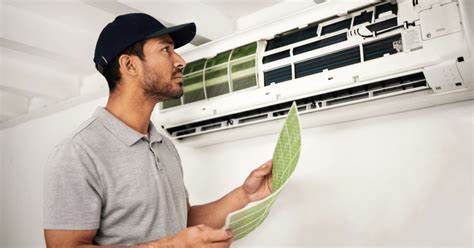
Picking the perfect filter is part science, part art. It’s about understanding your system’s needs and your air quality goals.
- Factors to Consider
Consider your HVAC system’s specifications, including whether you have a variable speed system or a gas furnace. These factors can influence the type of filter that will work best for your setup. Knowing how much pressure drop your system can handle without causing airflow restrictions is essential. - Specialty Filters for Added Protection
For those seeking the ultimate in air purification, options like electrostatic and HEPA filters offer superior filtration. However, ensure your system can handle these high-efficiency filters before making the switch. Specialty filters can significantly improve indoor air quality but may require adjustments to the HVAC unit. - Washable vs. Disposable Filters
While washable filters may seem eco-friendly, they often can’t match the effectiveness of disposable pleated filters. The convenience and consistent performance of disposables make them the go-to choice for many property managers. Disposable filters ensure consistent filtration efficiency, essential for maintaining indoor air quality.
How Often Should Air Filters Be Changed?
Changing your air filter isn’t just a chore—it’s a crucial part of maintaining your residential property’s air quality and your HVAC system’s health. A clogged filter is like a clogged artery for your HVAC system. Regular changes keep your system breathing easily and your air clean. Filters should be changed regularly to prevent the buildup of dust and debris, which can restrict airflow and cause system inefficiency.
Don’t wait for your system to gasp for air. Look out for visible dirt, reduced airflow, or increased energy bills as signs it’s time for a change. Regular inspections can prevent a filthy air filter from compromising the HVAC unit’s performance.
Final Thoughts on Air Filter Selection
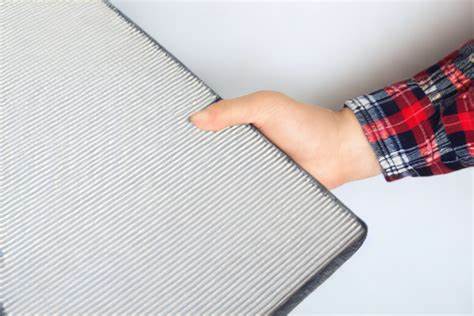
Choosing the best air filter for your residential HVAC system is more than a simple purchase—it’s an investment in the health, comfort, and longevity of your HVAC system. By understanding the types of filters available, considering your specific needs, and maintaining a regular replacement schedule, you can breathe easier knowing you’re creating the healthiest environment possible for your property.
Take a moment to assess your current filtration setup. Are you due for an upgrade? Remember, the air you breathe is only as clean as the filter you choose. A pleated filter, thicker filter, or a combination of two filters can significantly improve your air quality. Replacing your AC filter regularly can enhance airflow and reduce static pressure, leading to better system efficiency and lower electric bills.
Make an informed decision, and let your HVAC system do what it does best—keep your residential property comfortable and your air crisp and clean.
For expert advice and top-quality air filters, contact Callidus Air. Whether you need air conditioner filters, or air purifiers, or help choosing the best filter for your needs, we are here to assist. Don’t let particles larger than necessary compromise your indoor air quality.

